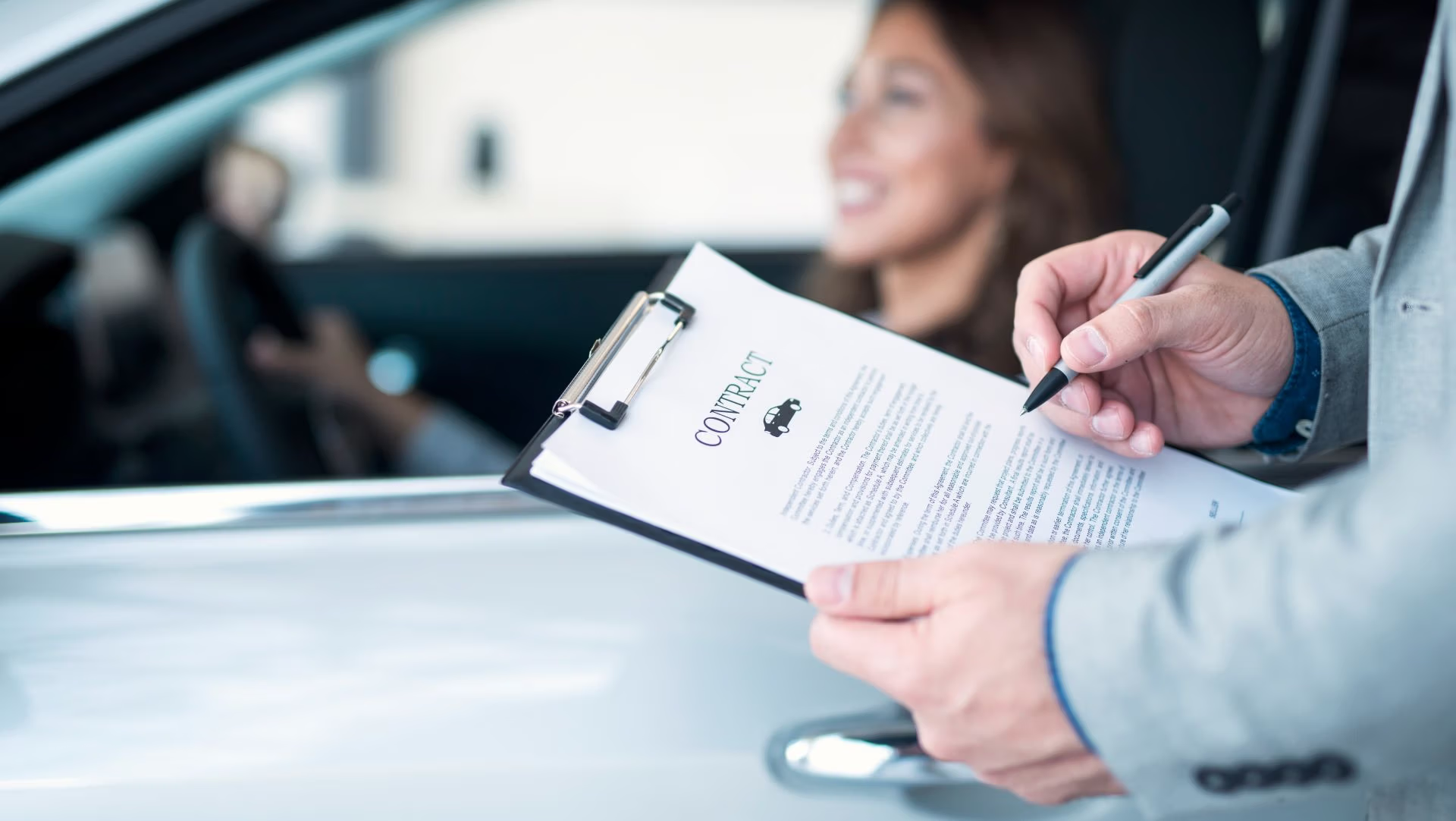Virginia Vehicle Transfer on Death Titles With Form VSA 18

Many Virginians spend time getting their wills and trusts in order, then discover that a single car can still force a probate file to be opened. A Transfer on Death vehicle title solves that problem. By filing DMV Form VSA 18, you can name a beneficiary who takes ownership of your car at your death without court involvement. Used correctly, this tool keeps a practical asset out of probate and gets it into the right hands quickly.
This guide explains how Transfer on Death titles work in Virginia, how to set one up, what your beneficiary must do after your death, and how this tool fits with wills, revocable trusts, and powers of attorney. The examples are tailored to families in Waynesboro, Staunton, and Augusta County, but the rules are statewide.
How a Virginia TOD title actually works
A Virginia title can list your name followed by the letters TOD and the beneficiary’s name. While you are alive, nothing changes. You remain the owner. The beneficiary has no rights to the vehicle and does not sign off on your decisions. If there are multiple owners, the transfer to the beneficiary occurs after the last surviving owner dies. At that point, the beneficiary is entitled to receive a new title in their own name and the Department of Motor Vehicles cancels the decedent’s registration. A will does not override a TOD designation. If you want to change who receives the vehicle, you must change the title.
Virginia imposes a strict timeline on the beneficiary. The beneficiary must apply for title within 120 days after the owner’s death. If the beneficiary misses that window, the right to obtain title lapses. If a named beneficiary dies before the owner, the designation fails and that beneficiary’s estate does not step into their place. These timing rules are easy to meet, but they matter, and we counsel beneficiaries to act promptly once a death certificate is available.

Eligibility and the pitfalls to avoid
Virginia treats TOD vehicle titles as a privilege with clear limits. Every titled owner must be a natural person. If any owner is a business, an LLC, a corporation, a partnership, or a trust, DMV will not issue a title with a beneficiary. The beneficiary must be a single individual. You cannot name more than one beneficiary and you cannot name an entity or a charity.
Liens are the other gating issue. You cannot add a beneficiary to a title that shows a recorded lien. If you later add a lien, the system removes the beneficiary designation. The clean workflow is to satisfy and release any lien first, obtain a clear title, then file for the substitute title that adds the TOD language.
Finally, all current owners must sign the request. Couples in Staunton often ask if only one spouse can sign because only one drives the car. If both names appear on the title, both signatures are required.
Setting up a TOD designation with VSA 18
For a vehicle already titled in your name, the process is straightforward. Complete DMV Form VSA 18, which is the Beneficiary Transaction Request. Complete Form VSA 67, which is the Application for Replacement and Substitute Titles. Bring the current Virginia title, your identification, and the fee for the substitute title. DMV issues a new title that shows the beneficiary designation.
If you are titling a newly acquired vehicle, you can add the beneficiary at the start. Submit the standard title application along with VSA 18 so the very first Virginia title carries the TOD language. That avoids a second trip and prevents any gap in planning.
Once issued, store the new paper title in a safe place. It is wise to tell the beneficiary where the original is kept so they know what to bring to DMV later. Notifying the beneficiary does not give them any present rights and it often prevents confusion.
What the beneficiary does after the owner’s death
When the owner dies, the beneficiary’s job is to gather the death certificate and the paper title, then visit DMV to apply for a new title. If the paper title cannot be located, the beneficiary can use DMV’s affidavit in lieu of title to complete the transfer. Beneficiaries should plan for new plates and a fresh registration because the decedent’s plates and registration are canceled.
The beneficiary must apply within 120 days of death. That clock starts on the date of death on the certificate. Acting within that period preserves the beneficiary’s right to the vehicle and prevents the matter from sliding into the probate process. In Augusta County, many families handle the DMV visit the same week they meet with our office to review the broader estate plan.

Taxes and fees you should expect
Adding, changing, or removing a beneficiary and issuing a substitute title carries a modest title fee. When the beneficiary later applies for a new title, the beneficiary should expect Motor Vehicle Sales and Use Tax on the value of the vehicle. Virginia’s rate is 4.15 percent with a seventy five dollar minimum. Certain close family transfers can qualify for an exemption when properly documented on DMV’s SUT 3 form.
How TOD vehicle titles fit into a real estate plan
A will and a TOD title serve different functions. The will directs probate assets. The TOD title is a will substitute for that specific vehicle. If a vehicle is covered by a TOD designation, it will not follow the will. That is why we coordinate these tools carefully. We draft wills to avoid conflicts and we review beneficiary designations during every update.
A revocable living trust is another common tool. Many clients in Waynesboro use trusts to keep real estate and financial accounts out of probate. Vehicles are different. DMV requires the owner and the beneficiary to be natural persons. You cannot list a trust as the TOD beneficiary. If you need the trust to control the vehicle, for example to manage it for a minor or to sell and divide proceeds, titling the car into the trust may be appropriate despite the extra steps, or you may allow the vehicle to pass through the estate so your executor can carry out the plan. If your goal is a simple gift of the car to a specific person, the TOD title is usually the cleaner and faster route.
Your financial power of attorney complements a TOD designation. The agent you name in your power of attorney can manage the vehicle for you during your lifetime, including selling it if needed for your benefit. That authority ends at death. At that moment, the TOD designation governs who takes title.
Finally, Virginia’s small estate procedures can help collect modest probate assets without opening a full estate. Because a TOD vehicle is nonprobate, it does not count toward any small estate thresholds. That can keep the remaining probate estate small and simple. Clients often combine TOD titles with payable on death and transfer on death designations on accounts to reduce or eliminate probate entirely.

When a TOD title is the right choice and when it is not
A TOD title is an excellent fit when you have a clear primary recipient such as a spouse or one adult child, when your priority is to simplify things for your family, and when you want a low cost, low friction transfer. It also fits well if the vehicle is of modest value and you are comfortable giving it outright to a single person.
A TOD title is not ideal when you need multiple or contingent beneficiaries, when your intended recipient is a minor or has special needs, or when you have special instructions for a high value or unique vehicle. It is also not ideal if your dispositive wishes change frequently and you may forget to update individual designations. In those scenarios, a trust or a will that directs your executor may be the better tool.
What to do next
If you live in Waynesboro, Staunton, Augusta County, or anywhere in the Central Shenandoah Valley, we can prepare the DMV forms, coordinate lien releases when needed, and align your vehicle titling with your will, trust, and powers of attorney. The goal is a plan that actually works at the counter and at the courthouse.
Schedule a consultation and we will help you decide whether a TOD title belongs in your estate plan, prepare the paperwork, and make sure your family can use it when it matters.

Frequently Asked Questions
What form do I use to add a Transfer on Death beneficiary?
Use VSA 18, titled Beneficiary Transaction Request. For an already titled vehicle you will also submit VSA 67 to issue a substitute title that shows the beneficiary.
Who must sign the paperwork?
All titled owners must sign. If both spouses appear on the title, both must sign VSA 18.
Can I name more than one beneficiary?
No. Virginia allows only one beneficiary per title and the beneficiary must be an individual.
Can the beneficiary be a trust, LLC, charity, or other entity?
No. Both the owner and the beneficiary must be natural persons.
Can I add a TOD if there is a lien on the title?
No. A recorded lien prevents issuance of a TOD title. If a lien is added after the TOD is in place, the DMV removes the beneficiary designation. Clear the lien first, obtain a clear title, then file VSA 18 and VSA 67.
We own the vehicle jointly. Can we still add a TOD?
Yes. All current owners sign VSA 18. The transfer to the beneficiary occurs after the last surviving owner dies.
When exactly does the transfer occur?
At the owner’s death. If there are multiple owners, at the death of the last surviving owner. The beneficiary has no rights before that time.
Can my will change who gets the vehicle if a TOD is on the title?
No. A will does not override a TOD designation. To change the recipient you must change the title using VSA 18 and obtain a substitute title.
How do I change or remove a TOD beneficiary?
File a new VSA 18, select change or remove, and request a substitute title. The DMV will issue an updated title reflecting your change.
What happens if the beneficiary dies before the owner?
The designation fails. The beneficiary’s estate does not step in. Update your title if a beneficiary predeceases you.
What if the beneficiary does not apply within 120 days of death?
The right to take title lapses. Beneficiaries should act promptly once a death certificate is available.
What should the beneficiary bring to DMV?
Bring a certified or notarized death certificate, the paper title that shows the TOD, identification, and title and tax payments. If the title is missing, use the affidavit in lieu of title form.
Can the beneficiary drive the vehicle before retitling?
Plan to retitle before regular use. Insurance, plates, and registration must be in the beneficiary’s name to lawfully operate the vehicle.
Can the beneficiary use the decedent’s license plates?
Plan for new plates and a fresh registration. The decedent’s registration is canceled during the transfer process.
What taxes and fees apply when the beneficiary takes title?
Expect the standard title fee and the Virginia Motor Vehicle Sales and Use Tax, which is generally 4.15 percent of value or a seventy five dollar minimum. Certain transfers to a spouse or to a parent or child can qualify for exemption when the correct tax form and documentation are provided.
Does a TOD title avoid probate?
Yes. The vehicle passes outside probate directly to the named beneficiary, provided the beneficiary applies in time.
Can I add a TOD when I first title a newly acquired vehicle?
Yes. Submit VSA 18 with your titling application so the first Virginia title lists the beneficiary.
Do motorcycles, trailers, and campers qualify?
Yes. Motor vehicles, trailers, and semitrailers may carry a TOD designation if they meet the same eligibility rules.
Can I list the same person as beneficiary on multiple vehicles?
Yes. You may file a separate VSA 18 for each vehicle and name the same individual if that is your intent.
Can my agent under a power of attorney add or change a TOD for me?
Only if your power of attorney expressly grants that authority. Most clients handle TOD designations themselves. Talk with your attorney before authorizing an agent to make beneficiary changes.
How does a TOD interact with a revocable living trust?
You cannot name your trust as the TOD beneficiary. If you need trust control or multiple or contingent beneficiaries, consider titling the vehicle to the trust or allowing the vehicle to pass through the estate for your executor to handle under your plan.
How does a TOD interact with Virginia’s small estate procedures?
A TOD vehicle is nonprobate. It does not count toward the personal property threshold for small estate affidavits. This often helps keep any remaining probate estate under the threshold.
What if I move out of Virginia?
TOD titles are state specific. If you retitle the vehicle in another state you will need to follow that state’s rules. Revisit your beneficiary designations after any move.
Is a TOD a good idea for a minor or a special needs beneficiary?
Usually no. Consider a trust or an executor sale with proceeds managed for the beneficiary. Discuss the right structure with your attorney.
When is a TOD title not advisable?
When you want multiple or contingent beneficiaries, when you have special instructions for a high value or unique vehicle, or when you frequently change your dispositive wishes and may forget to update individual designations.
How long does the DMV process take?
Most clients complete the filing for a substitute title during a single DMV visit. Mailed titles are typically delivered within a few weeks. Local DMV offices serving Waynesboro, Staunton, and Augusta County handle these requests routinely.

